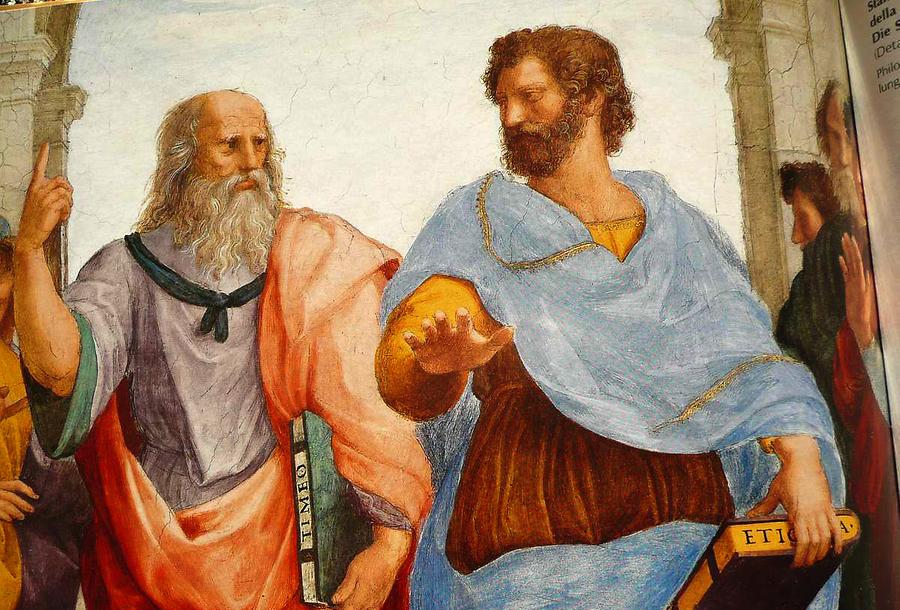Aristoteles and Platon#

Aristoteles and Platon, February 2009, © Gerhard Huber, under CC BY-NC 4.0 +Edu
Detail of Raffael's fresco "School of Athens" (1510-1511) showing Aristotle, a pupil of Plato. Plato and Aristotle share some points of view, but they came to their conclusions by very different ways: While Plato was rather intuitively minded and assumed to find realism in material world - beyond recognition for the human mind - Aristotle looked at the world from a natural scientist's prosaic point of view. He was the polymath par excellence. His main concern was with biology and medical science but he also made important discoveries in the field of meteorology, metaphysics, the political system and human behaviour.
He is reputed to have published 400 texts.
Ausschnitt von Raffaels Fresco „Die Schule von Athen“ (1510-1511)
Aristoteles, ein Schüler Platons. Zwar teilten Platon und Aristoteles eine Reihe von Ansichten, aber sie gelangten auf sehr unterschiedliche Weise zu ihren Erkenntnissen: Während Platon eher intuitiv veranlagt war und die wahre Realität hinter den irdischen Ereignissen vermutete – unerkennbar für den menschlichen Geist – beurteilte Aristoteles die Welt mit der nüchternen Objektivität des Naturwissenschafters. Er war der Universalgelehrte par excellence. Sein Hauptinteresse galt der Medizin und Biologie, doch machte er auch wichtige Entdeckungen über das Wetter, die Metaphysik, das Staatswesen und das menschliche Verhalten. 400 Bände soll der Meister verfasst haben.